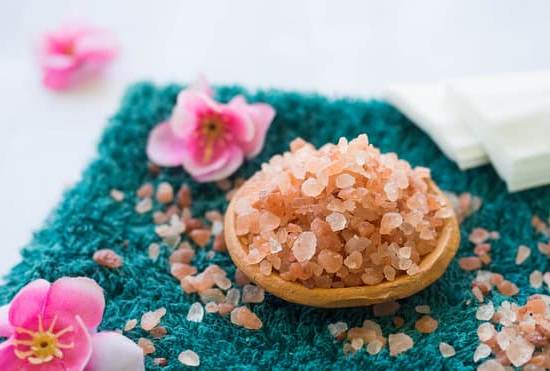Aromatherapy is a holistic healing treatment that uses natural plant extracts, known as essential oils, to promote overall well-being. These powerful oils are often inhaled or applied topically to provide therapeutic benefits to the body and mind. But what does aromatherapy treat? This article will delve into the world of aromatherapy, from its origins and how it works to the common ailments it can help alleviate.
Throughout history, aromatherapy has been used for a variety of purposes, including improving physical health, enhancing mood, and reducing stress. The practice dates back thousands of years, with ancient civilizations like the Egyptians, Greeks, and Romans incorporating aromatic plants into their rituals and treatments. Today, aromatherapy continues to be popular for its natural approach to healing and its ability to address a wide range of conditions.
The science behind aromatherapy lies in the powerful properties of essential oils. When inhaled, these aromatic compounds can stimulate the olfactory system and affect the brain’s limbic system, which is responsible for emotions and memories.
This process can trigger various physiological responses in the body, making aromatherapy an effective tool for managing stress, anxiety, pain, skin conditions, respiratory issues, and more. Stay tuned as we explore the many ways aromatherapy can be used to improve your overall health and well-being.
History of Aromatherapy
Aromatherapy has a long and rich history that dates back thousands of years, with roots in ancient civilizations such as Egypt, China, and India. These cultures recognized the powerful healing properties of aromatic plants and used them for various purposes, including religious ceremonies, medicinal treatments, and even embalming practices. Essential oils were highly valued for their therapeutic benefits in treating physical ailments as well as promoting mental well-being.
To delve into the origins of aromatherapy is to understand how our ancestors harnessed the natural scents of plants to heal the body, mind, and spirit. In ancient Egypt, aromatic oils were used in religious rituals and for embalming the deceased.
The famous Ebers Papyrus, dating back to around 1500 BCE, contains recipes for perfumes and ointments that highlight the Egyptians’ deep understanding of plant essences. Similarly, traditional Chinese medicine incorporated the use of aromatics like ginger, cinnamon, and mint to stimulate circulation and balance energy flow in the body.
Moving forward in history, aromatherapy continued to evolve as different cultures adopted their own methods of utilizing essential oils for therapeutic purposes. In medieval Europe, herbal distillation techniques became popular for creating fragrant waters known as “aqua vitae,” which were believed to have both physical and spiritual benefits.
During the Renaissance period, physicians like Paracelsus explored the concept of using botanical extracts for healing purposes. As we look back on these practices from centuries ago, it becomes clear that aromatherapy has a longstanding tradition of enhancing overall health and well-being through the power of plant essences.
- Ancient Egypt: Used aromatic oils in religious rituals and embalming practices
- Traditional Chinese Medicine: Incorporated aromatic plants like ginger and mint for medicinal purposes
- Medieval Europe: Popularized herbal distillation techniques for creating fragrant waters with therapeutic benefits
- Renaissance Period: Physicians like Paracelsus explored botanical extracts for healing
How Aromatherapy Works
Aromatherapy works by harnessing the powerful properties of essential oils extracted from various plants, flowers, herbs, and trees. These oils are highly concentrated and contain volatile compounds that can have a range of therapeutic effects on the body when inhaled or applied topically.
When essential oils are inhaled, the molecules travel through the olfactory system to reach the limbic system in the brain, which is responsible for emotions, memories, and behaviors. This direct connection to the limbic system is what allows aromatherapy to have such a profound impact on our mental and emotional well-being.
To further understand how aromatherapy works, it is crucial to consider the chemical composition of essential oils. Each oil contains different compounds like terpenes, alcohols, esters, and phenols that contribute to their unique therapeutic properties. For example, lavender essential oil is known for its calming and relaxing effects due to its high concentration of linalool and linalyl acetate. On the other hand, peppermint essential oil contains menthol, which gives it its cooling sensation and can help alleviate headaches and nausea.
In addition to their psychological effects, essential oils also have physical benefits when inhaled. Some essential oils have antimicrobial properties that can help fight off infections, while others have anti-inflammatory effects that can reduce pain and swelling in the body. By understanding the science behind aromatherapy and how essential oils interact with our bodies at a molecular level, we can better appreciate the holistic approach this practice takes towards healing and wellness.
Common Ailments Treated With Aromatherapy
Aromatherapy has been utilized for centuries as a natural remedy to help treat a wide range of physical and mental health conditions. The use of essential oils in aromatherapy can have therapeutic effects on the body, mind, and spirit. One of the key benefits of aromatherapy is its ability to alleviate common ailments without the need for synthetic medications or chemicals.
So, what does aromatherapy treat exactly? It can help with various conditions such as headaches, stress, anxiety, muscle aches, skin issues, respiratory problems, and more.
When it comes to mental health conditions like stress and anxiety, aromatherapy offers a holistic approach to relaxation and emotional well-being. Essential oils like lavender, chamomile, and bergamot are known for their calming properties that can help reduce feelings of stress and promote relaxation. Additionally, certain essential oils can also help improve sleep quality and alleviate symptoms of insomnia. Aromatherapy can be used in conjunction with other relaxation techniques such as meditation or yoga to enhance its benefits.
On the physical health front, aromatherapy is often used for pain management purposes. Essential oils like peppermint, eucalyptus, and rosemary have analgesic properties that can help ease various types of pain such as headaches, joint pain, or muscle soreness.
These essential oils can be applied topically through massage or added to a diffuser for inhalation. Aromatherapy is considered a safe and non-invasive alternative therapy for managing pain without the risk of adverse side effects often associated with conventional pain medications.
| Condition | Essential Oils |
|---|---|
| Stress & Anxiety | Lavender, Chamomile, Bergamot |
| Pain Management | Peppermint, Eucalyptus Rosemary |
Stress and Anxiety Relief
Aromatherapy is a holistic healing treatment that uses natural plant extracts, known as essential oils, to promote health and well-being. The practice of aromatherapy involves inhaling these aromatic essential oils or applying them to the skin through massages or baths. But what does aromatherapy treat? Aromatherapy can be used to address a wide range of physical and mental health conditions, including stress and anxiety.
For individuals dealing with high levels of stress or anxiety, specific essential oils can be particularly helpful in promoting relaxation and reducing feelings of tension. Some essential oils known for their calming properties include lavender, chamomile, bergamot, and ylang-ylang. These oils have been shown to have a soothing effect on the mind and body, helping to ease symptoms of stress and anxiety.
One popular method of using essential oils for stress and anxiety relief is through diffusers. By adding a few drops of an anxiety-reducing essential oil to a diffuser, individuals can enjoy the therapeutic benefits of the oil through inhalation.
Additionally, incorporating these calming essential oils into massage oils or bath products can enhance relaxation and promote a sense of peace and tranquility. Overall, aromatherapy offers a natural and gentle way to manage stress and anxiety without the need for harsh medications or treatments.
Pain Management
Aromatherapy is a holistic healing treatment that uses plant extracts, known as essential oils, to promote physical and psychological well-being. When inhaled, these concentrated extracts can have various therapeutic effects on the body, including pain relief. Pain management is one of the key benefits of aromatherapy, with essential oils offering a natural alternative to traditional over-the-counter medications.
Headaches are a common affliction that many people experience due to factors such as stress, dehydration, or muscle tension. Certain essential oils have analgesic properties that can help alleviate headache symptoms. Peppermint oil, for example, has cooling effects that can soothe tension headaches when applied to the temples or forehead. Lavender oil is known for its calming properties and can assist in relieving headaches caused by stress or anxiety.
In addition to headaches, aromatherapy can also be effective in managing muscle aches and pains. Whether it’s from physical exertion, poor posture, or chronic conditions like arthritis, muscle discomfort can significantly impact one’s quality of life.
Essential oils such as eucalyptus and rosemary have anti-inflammatory properties that can reduce muscle soreness and improve circulation. By incorporating these oils into massage blends or diffusing them in the air, individuals can experience relief from muscular discomfort without relying on medication.
Skin Conditions
Aromatherapy is a holistic healing treatment that uses natural plant extracts, known as essential oils, to promote health and well-being. When it comes to skin conditions like acne, eczema, or dryness, aromatherapy can be a beneficial and soothing option.
Essential oils such as tea tree, lavender, and chamomile have anti-inflammatory and antimicrobial properties that can help combat acne-causing bacteria and reduce inflammation. In addition, oils like frankincense and myrrh are known for their skin rejuvenating effects, making them great options for addressing dryness or aging skin.
One of the ways aromatherapy can be used for skin conditions is through topical application. Essential oils can be diluted in a carrier oil and applied directly to the affected area or added to skincare products like lotions or creams.
This allows the active compounds in the oils to penetrate the skin, providing relief and promoting healing from within. It’s important to remember that essential oils are highly concentrated and should always be diluted before applying to the skin to avoid irritation or adverse reactions.
In addition to topical application, aromatherapy can also benefit skin conditions through inhalation methods. Diffusing essential oils into the air not only creates a pleasant aroma but also allows the therapeutic properties of the oils to enter the body through inhalation.
This can help reduce stress levels, which can worsen certain skin conditions like acne or eczema. By incorporating aromatherapy into your daily skincare routine, you can not only address specific skin issues but also enjoy a relaxing and rejuvenating experience.
| Essential Oils | Benefits |
|---|---|
| Tea Tree | Anti-inflammatory and antimicrobial properties for acne treatment |
| Lavender | Soothing effects on irritated skin |
| Chamomile | Calming effect on sensitive or inflamed skin |
Respiratory Issues
Aromatherapy is a holistic healing treatment that involves using essential oils to promote physical, emotional, and mental well-being. When it comes to respiratory issues like sinus congestion or allergies, aromatherapy can be a beneficial complementary therapy to help manage symptoms and provide relief. The inhalation of specific essential oils can have therapeutic effects on the respiratory system, promoting easier breathing and overall respiratory health.
Essential Oils for Respiratory Health
Certain essential oils are known for their ability to support respiratory health and alleviate symptoms of conditions like sinus congestion or allergies. Eucalyptus oil, for example, is commonly used in aromatherapy for its decongestant properties that can help clear nasal passages and ease breathing difficulties. Peppermint oil is another popular choice due to its cooling effect which can relieve sinus pressure and improve airflow.
Benefits of Aromatherapy for Respiratory Conditions
Aromatherapy can assist with respiratory issues by not only providing relief from symptoms but also by supporting the body’s natural healing mechanisms. Inhaling essential oils can help reduce inflammation in the airways, loosen mucus buildup, and soothe irritated tissues in the respiratory tract. Additionally, certain essential oils have antimicrobial properties that can help fight off infections that may exacerbate respiratory conditions.
Aromatherapy Practices for Respiratory Relief
There are several ways to incorporate aromatherapy into your routine to address respiratory issues. Inhalation methods such as using a diffuser, steam inhalation, or adding a few drops of essential oil to a bowl of hot water for inhalation can be effective ways to reap the benefits of aromatherapy for respiratory health. It is important to choose high-quality essential oils and follow safety guidelines when using aromatherapy for respiratory conditions to ensure optimal results without any adverse effects.
DIY Aromatherapy Recipes
Relaxation Blend
To create a soothing blend that promotes relaxation and helps reduce stress and anxiety, mix together 2 drops of lavender essential oil, 2 drops of chamomile essential oil, and 2 drops of bergamot essential oil. Add this mixture to a diffuser or blend it with a carrier oil like coconut or jojoba for a calming massage oil. Inhaling this blend can help calm the mind and body, making it perfect for use before bedtime or during moments of high stress.
Headache Relief Blend
For those dealing with tension headaches or migraines, a simple aromatherapy blend can provide relief. Combine 2 drops of peppermint essential oil, 1 drop of eucalyptus essential oil, and 1 drop of rosemary essential oil. Dilute this mixture with a carrier oil like almond or grapeseed and apply it to the temples, neck, and forehead for headache relief. The cooling effect of peppermint combined with the analgesic properties of eucalyptus and rosemary can help alleviate headache symptoms.
Immune Support Blend
Boost your immune system with an aromatherapy blend designed to support overall health and well-being. Mix together 2 drops of tea tree essential oil, 2 drops of lemon essential oil, and 2 drops of lavender essential oil.
This combination has antiviral, antibacterial, and immune-boosting properties that can help fend off illness and keep you feeling healthy. Diffuse this blend in your home to purify the air or add it to a rollerball bottle with a carrier oil for topical application on pulse points.
Precautions and Side Effects
In conclusion, aromatherapy is a holistic practice that has been used for centuries to promote overall well-being and treat various ailments. Essential oils have a powerful impact on the body and mind, offering therapeutic benefits beyond just their pleasant scents. By understanding the basics of aromatherapy and how essential oils work, individuals can harness the healing properties of these natural remedies.
When considering what does aromatherapy treat, it is important to note that this practice can help alleviate a wide range of physical and mental health conditions. From stress and anxiety relief to pain management, skin conditions, and respiratory issues, aromatherapy offers versatile solutions for improving one’s health naturally. By incorporating specific essential oils into their daily routines, individuals can experience the soothing effects of aromatherapy on both their bodies and minds.
However, it is crucial to use essential oils safely and be aware of potential risks associated with aromatherapy. Precautions must be taken when using these potent substances to avoid adverse reactions or side effects.
By educating oneself on proper usage guidelines and consulting with a healthcare professional if necessary, individuals can enjoy the benefits of aromatherapy without compromising their well-being. Remember that while aromatherapy can be a valuable tool in promoting health and healing, caution should always be exercised to ensure safe and effective outcomes.
Frequently Asked Questions
What Is Aromatherapy and Its Benefits?
Aromatherapy is a holistic healing treatment that uses natural plant extracts to promote health and well-being. These essential oils can be inhaled or applied to the skin, providing various benefits such as reducing stress, improving sleep, boosting mood, and relieving pain.
What Does an Aromatherapist Do?
An aromatherapist is a trained professional who specializes in the use of essential oils for therapeutic purposes. They conduct assessments to determine the most suitable essential oils for each individual’s needs and create personalized blends or treatments. Aromatherapists may offer massages, aromatherapy baths, inhalation therapy, or diffuser treatments.
What Type of Therapy Is Aromatherapy?
Aromatherapy falls under the category of complementary medicine, focusing on the use of natural remedies to enhance physical and emotional health. It is considered a form of alternative medicine that complements traditional treatments but does not replace them. Aromatherapy can be used on its own or alongside other therapies to improve overall well-being and relaxation.

Are you looking for a natural way to improve your health and wellbeing?
If so, aromatherapy may be the answer for you.





